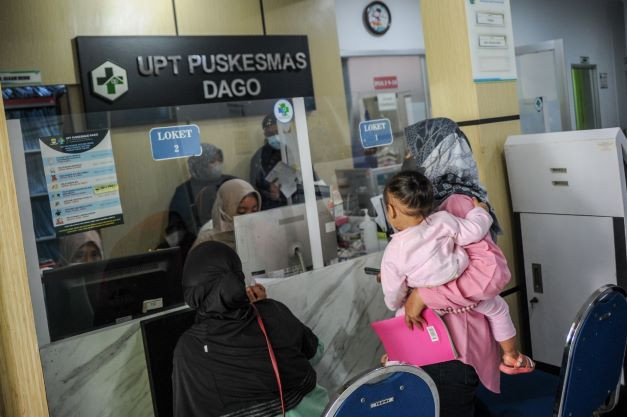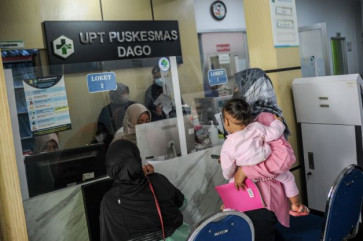Popular Reads
Top Results
Can't find what you're looking for?
View all search resultsPopular Reads
Top Results
Can't find what you're looking for?
View all search resultsMother's multi-role: Reverse domestic stigma and urgency of women’s education
World Bank stated Indonesia had made considerable progress toward gender equality over the past decade, with improved rates of literacy, school enrollment and employment, as well as policies to pave the way for a more gender-equitable society.
Change text size
Gift Premium Articles
to Anyone
I
ndonesia achieved gender parity in education participation at the national level in 2019, with a GPI of 1.00 for school enrollment rates of children 7-12 years old. Therefore, World Bank stated Indonesia had made considerable progress toward gender equality over the past decade, with improved rates of literacy, school enrollment and employment, as well as policies to pave the way for a more gender-equitable society. Does it benefit women?
Some stigma about education for girls remains
Enrollment in education, literacy and employment for females in Indonesia are increasing. However, there is still some stigma, a belief that education for girls is unimportant, as if they will be housewives who fulfill "only" domestic roles of childbearing, cooking and serving the husband.
Data from the National Socioeconomic Survey (SUSENAS) in 2017 show the primary reasons for female students dropping out of school compared to males are being married and taking care of the household. Thus, it is assumed current education is enough. Those domestic roles are labeled as a housewife's duty, which is given, and they are expected to be carried out smoothly, without proper education needed. Socially, it seems like a simple task with less risk than that of a father who works outside. In the past, the father worked by hunting, gathering and struggling with external challenges to protect the family. Thus, the public and domestic division of labor. Latterly, with better gender parity in education, how does this impact gender roles?
Even as societies shift into modern culture, the viewpoint that girls should not be in school has remained. Indonesia has a high number of child marriages, with economic hurdles as the major reason, which is likely intertwined with dropping out; being in school postpones the economic benefit of being a wife who gets financial support from the husband. Moreover, there is no need for a higher education certification to become a child laborer or migrant worker, which seem like rational options, compared to being in school with no immediate economic return. Moreover, the subjects taught at school are considered irrelevant to the knowledge needed at home to become a housewife. Thus, school is considered not to be beneficial for girls, even though school culture includes hidden curricula like personal soft skills such as decision-making capability, skills in delivering opinions and confidence, as well as larger impacts, such as the level of lifetime earnings and decreasing child and maternal mortality.
Mother’s burden and childcare arrangements
The pandemic brings education from public spaces closer to home, a game changer for the arrangement of domestic roles. The COVID-19 pandemic has prolonged the mad morning rush into a day-long effort for mothers to prepare their children for school. Now, the learning process happens at home. It has never been imagined before that the mother would have a duty to be a teacher, inadvertently. During the pandemic, more than 68 million students in Indonesia, from the preprimary to tertiary levels, have been affected by school closures (UNESCO, The Jakarta Post, 2020). The COVID-19 pandemic has profoundly and suddenly impacted many areas of life, work and family alike. These changes have also affected the educational process in formal and informal learning environments (frontiersin.org, 2021). It impacts the parents as the primary socialization agent, who have a central role in implementing learning from home during the pandemic. Unfortunately, the burden of assisting children's learning during the pandemic falls more on mothers than fathers.



















